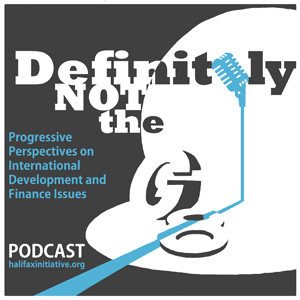Robin Hood Tax: Canada misses a chance for Leadership
OTTAWA – The Canadian Government is missing an historic opportunity to offer constructive global leadership by refusing to consider any kind of levy on the global financial sector.
“There are two proposals on the table here,” said Fraser Reilly-King of the Halifax Initiative. “One would save the banks, the other would save the world. At a time when global poverty is rising, along with sea levels, and European economies are crashing, the Harper government is actively campaigning against both.”
A Bank Tax would apply broadly and ensure future bailout funds would come from banks themselves, not the public. Canada’s counterproposal involves “embedded contingent capital,” which would shift the burden to shareholders, turning [contingent] bonds to equity if the banks run into trouble.
